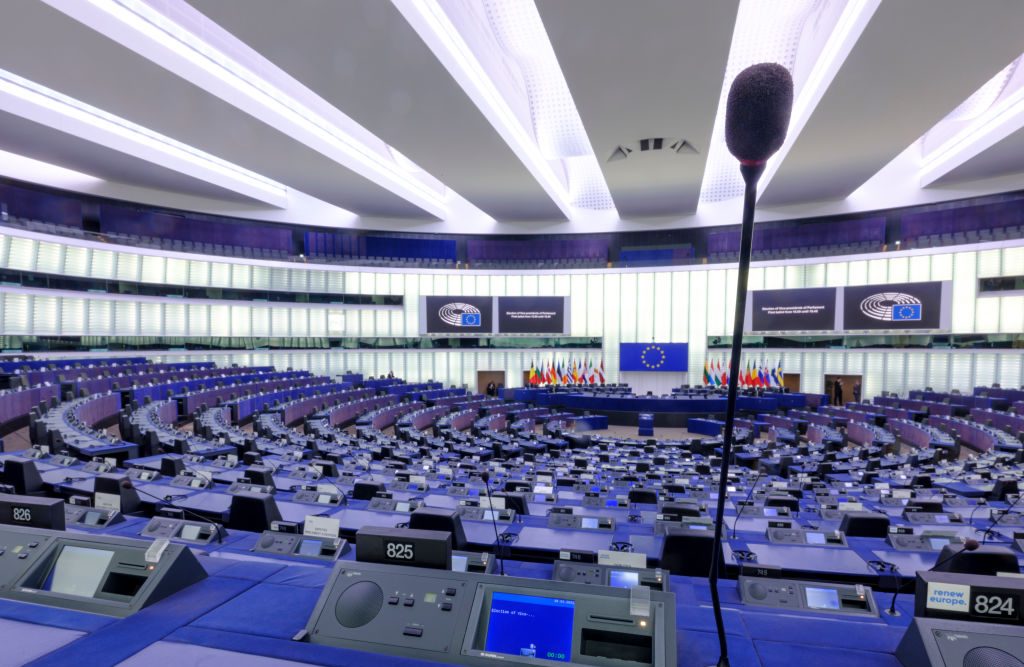The European Union could use the cover of the Euro 2024 football tournament to force through a suite of online spying rules, an MEP has warned.
Patrick Breyer, a member of the German Pirate Party, suggested that the Council of the European Union, which Belgium currently chairs, could attempt to push through the EU’s controversial “chat control” rules as soon as June 19.
That is despite complaints from numerous companies and digital-rights activists that the rules would undermine encryption throughout Europe.
Today is our last day to stop #ChatControl: Let's save our digital privacy and secure encryption online! Here's what to do today: https://t.co/nGzsX2eX8W pic.twitter.com/74cUrVDmrs
— Patrick Breyer #JoinMastodon (@echo_pbreyer) June 18, 2024
“Just a few days after the European elections and during the UEFA [Euro] soccer tournament, EU governments may position themselves in favour of chat control scanning of all of our private messages,” the Greens group MEP Breyer said.
He claimed that the rules would see Brussels deploy “snooping algorithms” and “artificial intelligence” to gather information on private messages and images sent using social media, gaming services and dating platforms.
Breyer added that would almost certainly result in “hundreds of thousands” of messages and intimate images ending up in the hands of police and private moderators. He said current data suggested the vast majority of such would not contain any illegal content.
“According to the latest figures by the German Crime Agency [BKA], more than half of these leaked chats last year were completely legal and irrelevant under criminal law, including our family photos, intimate nude photos exchanged between partners and texting by minors,” he said.
“Our intimate photos do not belong in the hands of people we don’t know and they aren’t safe there.
“Talks are underway to finalise mandatory chat-control legislation these days, even though the Council’s own legal service warns that indiscriminate chat control violates our fundamental rights,” he added.
The European Union is not able to legally measure the success of its own diversity quotas thanks to GDPR rules, leaked messages appear to show. https://t.co/LTI1xrZeeJ
— Brussels Signal (@brusselssignal) December 4, 2023
Breyer’s warning came after months of controversy surrounding the EU’s chat-control bill.
Initially floated by Home Affairs Commissioner Ylva Johansson as a way to combat child pornography, the plan provoked backlash from digital rights activists. They suggested the EU’s desire to automatically scan all images uploaded to private chats using AI would effectively render end-to-end encryption impotent.
Such controversy was exacerbated after it was revealed that the European Commission — in an attempt to get the public to accept the rules — broke its own GDPR data protection regulations.
According to reports, the EC ran an advertising campaign promoting chat control on social media platform X that would only show up for users with certain political and social standpoints, a form of illegal discrimination under the GDPR.
EU chair Belgium has since promoted a revamped version of the proposal that it says will not violate online privacy.
Online messaging giant Signal ridiculed such claims.
“For decades, experts have been clear: there is no way to both preserve the integrity of end-to-end encryption and expose encrypted contents to surveillance,” said Meredith Whittaker, the president of the California-based company.
She claimed an EU plan to make scanning only apply to links and file uploads was a “branding exercise” that did not in any way change the fact that the plan would destroy privacy.
“There is no way to implement such proposals in the context of end-to-end encrypted communications without fundamentally undermining encryption and creating a dangerous vulnerability in core infrastructure that would have global implications well beyond Europe,” she said.
“Instead of accepting this fundamental mathematical reality, some European countries continue to play rhetorical games. They’ve come back to the table with the same idea under a new label.
“Rhetorical games are cute in marketing or tabloid reporting, but they are dangerous and naive when applied to such a serious topic with such high stakes.
“So let’s be very clear, again: mandating mass scanning of private communications fundamentally undermines encryption. Full stop,” she concluded.
The EU Commission is struggling to reconcile a landmark ECHR ruling on encryption with its own efforts against child sexual material. @vonpecka: "The EU should cease its efforts towards the statutory obligation to decrypt end-to-end communications." https://t.co/j8H58qrxyU
— Brussels Signal (@brusselssignal) February 21, 2024





